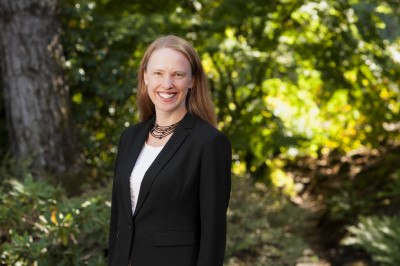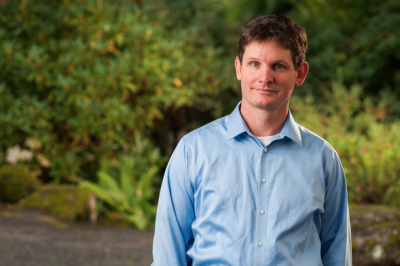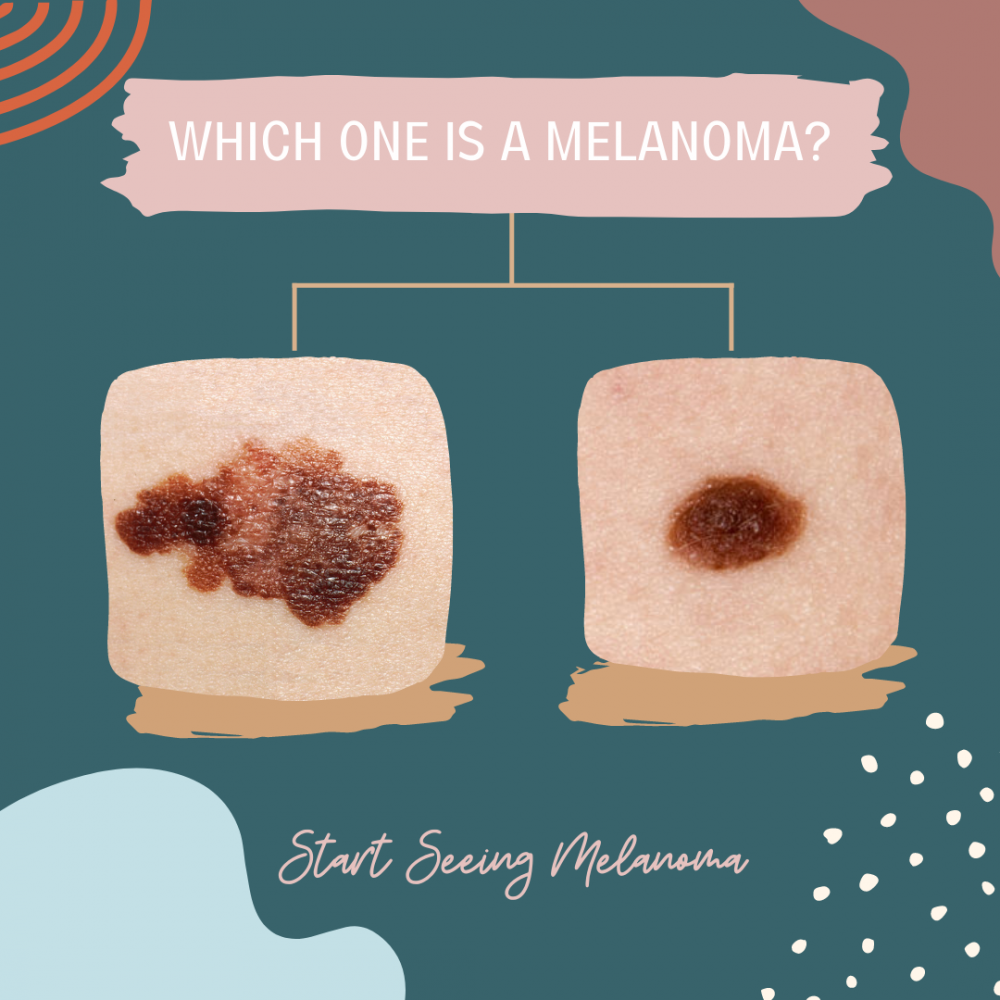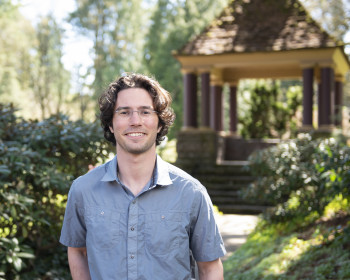Can You Spot Skin Cancer? L&C Psychologists Bring Their Expertise to Public Health Campaign
In collaboration with Oregon Health & Science University and the University of Oregon, psychology professors Jerusha and Brian Detweiler-Bedell conduct research to help Oregonians identify and respond to the risk of melanoma.
In a state known for its gray skies and rain showers, it may come as a surprise that Oregon is in the top 10 nationally for rates of melanoma, a form of skin cancer that can be fatal or disfiguring if not treated at an early stage.
The public’s misunderstanding of melanoma risks brought Jerusha Detweiler-Bedell, professor of psychology and founding director of Lewis & Clark’s Center for Community and Global Health, and Brian Detweiler-Bedell, professor of psychology and director of the Bates Center for Entrepreneurship and Leadership, to their work on the Start Seeing Melanoma public health campaign, a collaborative project with Oregon Health & Science University (OHSU) and the University of Oregon.

Credit: Steve HambuchenA number of years ago, Jerusha and Brian were invited to speak at OHSU about techniques that can be used to promote positive physical and mental health behaviors. Their research caught the attention of an audience member, who directed the pair to Sancy Leachman, chair of the Department of Dermatology at OHSU and the melanoma program director of Knight Cancer Institute. Leachman was just beginning her work on the War on Melanoma, a multifaceted effort to eliminate the cancer as a cause of death.
Working alongside researchers at the University of Oregon, Jerusha and Brian were tasked with understanding where Oregonians are in their knowledge of melanoma and what can be done to improve this knowledge. Melanoma is known as the “cancer you can stop with your eyes” because it’s most often self-identified or noticed by partners. The survival rate is 99 percent if treated early but as low as 30 percent if it is detected late.

Credit: Steve Hambuchen“What marketers and dermatology experts don’t have is a psychological understanding of what people need to motivate themselves to adopt a new health behavior,” said Brian. “That’s where we as social psychologists and health psychologists step in.”
In 2019, Jerusha and Brian began collecting data in Oregon, Washington, and Utah to form a regional comparison of melanoma knowledge. In all elements of the survey—respondents’ understanding of melanoma, perception of melanoma as a threat, adeptness to respond to the threat, and confidence in their ability to do so—the researchers found deficits, particularly when it came to confidence.
“It’s not just having knowledge of what you’re supposed to look for,” Jerusha said. “It’s also having self-efficacy—believing that you can be effective in identifying whatever the problem is.”
The survey findings helped to inform the Start Seeing Melanoma campaign, which is designed to encourage members of the general population to trust their own ability to identify the areas of the skin that may need further inspection. The campaign uses a “spot-the-difference” strategy: individuals are shown two pictures of skin, side by side, that vary by a single mole or abnormality. When people learn to recognize the difference in the images, they gain an understanding that self-identification of potential melanoma is possible.
For Jerusha and Brian, work associated with the campaign is ongoing. Their next step will be finalizing an academic paper discussing their initial survey findings. In addition, in the fall, they will conduct a second population survey for comparison with the hope that melanoma education among Oregonians has improved.
A key element of Jerusha and Brian’s research has been the involvement of undergraduate students through the Behavioral Health and Social Psychology Lab, which has long served as an avenue to engage students in the collaborative research process.
“In every iteration, we used the lab as a sounding board, with undergraduates giving us ideas about how to test something, how to intervene, and what that would mean in a social media campaign,” Brian said. “They were a brain trust all along the way.”
Learn more about Start Seeing Melanoma’s work on its website, on Facebook, and on Instagram.
More Newsroom Stories
Public Relations is located in McAfee on the Undergraduate Campus.
MSC: 19
email public@lclark.edu
voice 503-768-7970
Public Relations
Lewis & Clark
615 S. Palatine Hill Road MSC 19
Portland OR 97219


